Vascular Function
How to submit an article:
- Registered users can submit any published journal article that has a unique DOI (Digital Object Identifier) name or link to Research Hub.
- For example, you can paste the full DOI link:
https://doi.org/10.1109/5.771073or just the DOI name:10.1109/5.771073into the field above and click submit. - The person who is first to submit a valid article to Research Hub will forever be credited for it, and every article submission earns you +6 Research Points.
Related Topics
Published research studies are articles that present the findings of original research that has undergone a peer-review process and has been made publicly available in scholarly journals, books or other media.

Exploring the Potential Benefits of Natural Calcium-Rich Mineral Waters for Health and Wellness: A Systematic Review
2023 Jul 13 Nutrients Pop MS, Cheregi DC, Onose G, Munteanu C, Popescu C, Rotariu M, et al.
Systematic Review Meta-Analysis Cardiovascular Disease High Blood Pressure Mineral Water Natural Calcium-rich mineral water Bone Health CalciumNatural calcium-rich mineral waters offer a bioavailable calcium source, beneficial for bone health, cardiovascular function, weight management, and overall well-being.
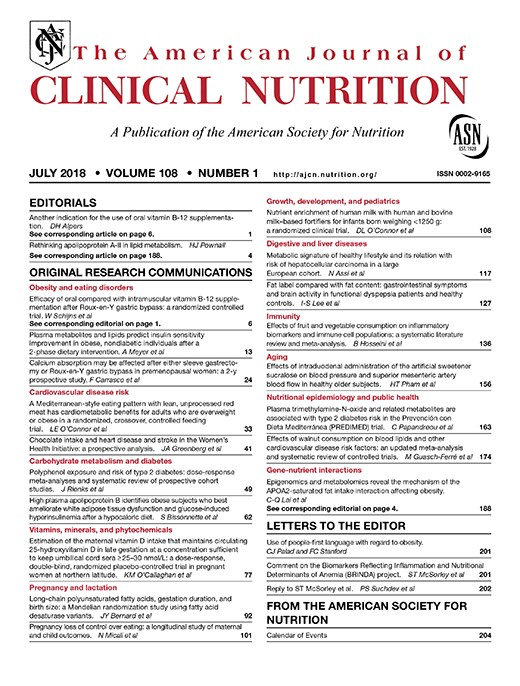
Wild blueberry (poly)phenols can improve vascular function and cognitive performance in healthy older individuals: a double-blind randomized controlled trial
2023 Jun The American Journal of Clinical Nutrition Wood E, Hein S, Mesnage R, Fernandes F, Abhayaratne N, Xu Y, et al.
Randomised Controlled Trial Cognitive Function Blueberry High Blood Pressure Cardiovascular DiseaseConsumption of blueberry powder daily improves vascular function, cognitive abilities, and reduces blood pressure in healthy older individuals.
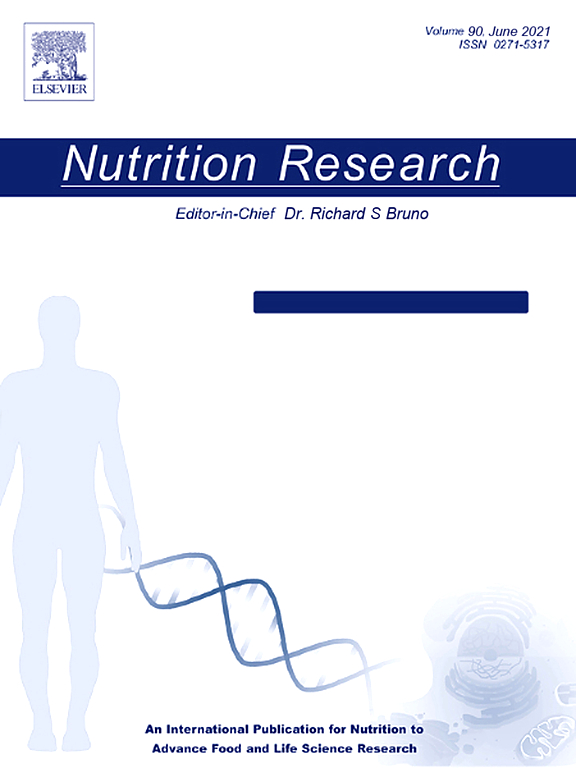
Pecan-enriched diet improves cholesterol profiles and enhances postprandial microvascular reactivity in older adults
2023 Mar Nutrition Research Cogan B, Pearson RC, Paton CM, Jenkins NT, Cooper JA
Daily consumption of 68 g of pecans for 4 weeks resulted in greater reductions in fasting total cholesterol, low-density lipoprotein (LDL) cholesterol, non-high-density lipoprotein cholesterol, LDL particle number, and LDL medium compared to a nut-free diet. Postprandial triglyceride levels were suppressed with pecan consumption, and improvements in microvascular reactivity were observed. Fasting macro- and microvascular function remained unaffected. The findings suggest that pecan consumption may contribute to improved vascular health and reduced cardiovascular risk in older adults.
Clinical Study Randomised Controlled Trial Cholesterol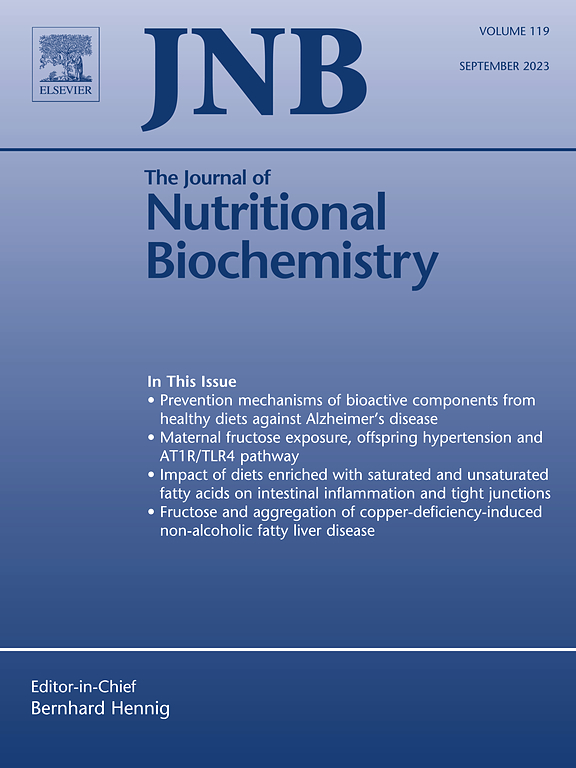
Blueberries and their bioactives in the modulation of oxidative stress, inflammation and cardio/vascular function markers: a systematic review of human intervention studies
2023 Jan The Journal of Nutritional Biochemistry Martini D, Marino M, Venturi S, Tucci M, Klimis-Zacas D, Riso P, et al.
Blueberries may improve markers of vascular function, particularly in individuals with risk factors or diseases, but the effects on inflammation, oxidative stress, and cardiometabolic risk markers are inconsistent and may vary depending on study design and participant characteristics.
Systematic Review Blueberry Vascular Function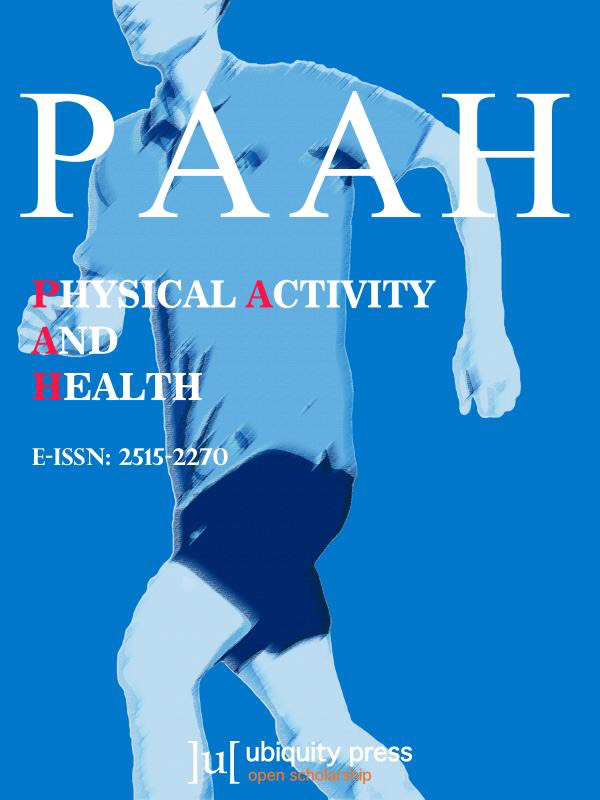
Effects of Tai Chi Chuan on the Physical and Mental Health of the Elderly: A Systematic Review
2021 Jan 27 Physical Activity and Health Xianjian C, Datao X
Systematic Review Tai Chi & Qi GongAll schools of Tai Chi chuan can improve the mental health of the elderly.
Research insights are moderated by the Research Hub team and offer an at-a-glance overview of interesting research findings.

2023 Nutrients
Natural calcium-rich mineral waters offer a bioavailable calcium source, beneficial for bone health, cardiovascular function, weight management, and overall well-being.
Systematic Review Bone Health Calcium Cardiovascular Disease High Blood Pressure Mineral Water
Exploring the Potential Benefits of Natural Calcium-Rich Mineral Waters for Health and Wellness: A Systematic Review
Pop MS, Cheregi DC, Onose G, Munteanu C, Popescu C, Rotariu M, et al.

2023 The American Journal of Clinical Nutrition
Consumption of blueberry powder daily improves vascular function, cognitive abilities, and reduces blood pressure in healthy older individuals.
Randomised Controlled Trial Blueberry Cardiovascular Disease Cognitive Function High Blood Pressure
Wild blueberry (poly)phenols can improve vascular function and cognitive performance in healthy older individuals: a double-blind randomized controlled trial
Wood E, Hein S, Mesnage R, Fernandes F, Abhayaratne N, Xu Y, et al.

2021 Physical Activity and Health
All schools of Tai Chi chuan can improve the mental health of the elderly.
Systematic Review Tai Chi & Qi Gong
Effects of Tai Chi Chuan on the Physical and Mental Health of the Elderly: A Systematic Review
Xianjian C, Datao X
2019 Agricultural Reviews
Cocoa and cocoa products, enriched with polyphenols, have potential health benefits including enhanced vascular function, cancer prevention, and improvement in learning and memory.
Review Article Anti-Inflammatory Anticancer Antioxidant Cognitive Function Insulin Resistance
Health benefits of bioactive compounds from cocoa (Theobroma cacao)
E S, Panjikkaran ST, L SC, R RP

2018 Frontiers in Pharmacology
Lycopene may improve vascular function and contributes to the primary and secondary prevention of cardiovascular disorders.
Review Article
Lycopene and Vascular Health
Mozos, I., Stoian, D., Caraba, A., et al.
Review Articles
Review articles summarise and critically evaluate the current state of research on a specific topic or field by synthesising multiple primary research studies.

Exploring the Potential Benefits of Natural Calcium-Rich Mineral Waters for Health and Wellness: A Systematic Review
2023 Jul 13 Nutrients Pop MS, Cheregi DC, Onose G, Munteanu C, Popescu C, Rotariu M, et al.
Systematic Review Meta-Analysis Cardiovascular Disease High Blood Pressure Mineral Water Natural Calcium-rich mineral water Bone Health CalciumNatural calcium-rich mineral waters offer a bioavailable calcium source, beneficial for bone health, cardiovascular function, weight management, and overall well-being.

Blueberries and their bioactives in the modulation of oxidative stress, inflammation and cardio/vascular function markers: a systematic review of human intervention studies
2023 Jan The Journal of Nutritional Biochemistry Martini D, Marino M, Venturi S, Tucci M, Klimis-Zacas D, Riso P, et al.
Blueberries may improve markers of vascular function, particularly in individuals with risk factors or diseases, but the effects on inflammation, oxidative stress, and cardiometabolic risk markers are inconsistent and may vary depending on study design and participant characteristics.
Systematic Review Blueberry Vascular Function
Effects of Tai Chi Chuan on the Physical and Mental Health of the Elderly: A Systematic Review
2021 Jan 27 Physical Activity and Health Xianjian C, Datao X
Systematic Review Tai Chi & Qi GongAll schools of Tai Chi chuan can improve the mental health of the elderly.
Health benefits of bioactive compounds from cocoa (Theobroma cacao)
2019 Aug 26 Agricultural Reviews E S, Panjikkaran ST, L SC, R RP
Review Article Antioxidant Anti-Inflammatory Insulin Resistance Vascular Function Cognitive Function AnticancerCocoa and cocoa products, enriched with polyphenols, have potential health benefits including enhanced vascular function, cancer prevention, and improvement in learning and memory.
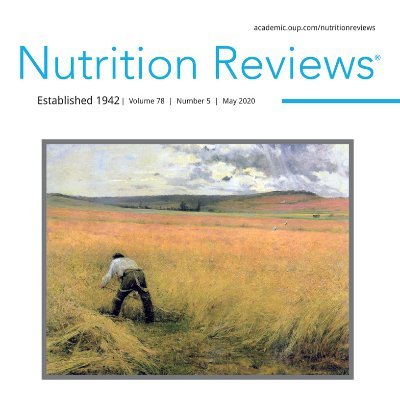
Role of berries in vascular function: a systematic review of human intervention studies
2019 Jul 31 Nutrition Reviews Martini D, Marino M, Angelino D, Del Bo’ C, Del Rio D, Riso P, et al.
Current evidence suggests that berries, at physiological relevant doses, may have a role in the modulation of vascular function and stiffness.
Systematic Review Berry ConsumptionClinical Trials
Clinical trials are research studies that involve people and are conducted to evaluate the safety and efficacy of new treatments or interventions, such as drugs, medical devices, or behavioural therapies.

Wild blueberry (poly)phenols can improve vascular function and cognitive performance in healthy older individuals: a double-blind randomized controlled trial
2023 Jun The American Journal of Clinical Nutrition Wood E, Hein S, Mesnage R, Fernandes F, Abhayaratne N, Xu Y, et al.
Randomised Controlled Trial Cognitive Function Blueberry High Blood Pressure Cardiovascular DiseaseConsumption of blueberry powder daily improves vascular function, cognitive abilities, and reduces blood pressure in healthy older individuals.

Pecan-enriched diet improves cholesterol profiles and enhances postprandial microvascular reactivity in older adults
2023 Mar Nutrition Research Cogan B, Pearson RC, Paton CM, Jenkins NT, Cooper JA
Daily consumption of 68 g of pecans for 4 weeks resulted in greater reductions in fasting total cholesterol, low-density lipoprotein (LDL) cholesterol, non-high-density lipoprotein cholesterol, LDL particle number, and LDL medium compared to a nut-free diet. Postprandial triglyceride levels were suppressed with pecan consumption, and improvements in microvascular reactivity were observed. Fasting macro- and microvascular function remained unaffected. The findings suggest that pecan consumption may contribute to improved vascular health and reduced cardiovascular risk in older adults.
Clinical Study Randomised Controlled Trial Cholesterol
Effects of Montmorency tart cherry (Prunus Cerasus L.) consumption on vascular function in men with early hypertension
2016 Jun The American Journal of Clinical Nutrition Keane KM, George TW, Constantinou CL, Brown MA, Clifford T, Howatson G
Randomised Controlled Trial High Blood Pressure Cherry Systolic Blood Pressure Cardioprotective EffectsMontmorency tart cherry juice intake can significantly lower systolic blood pressure in men with early hypertension, with improvements linked to phenolic acids.
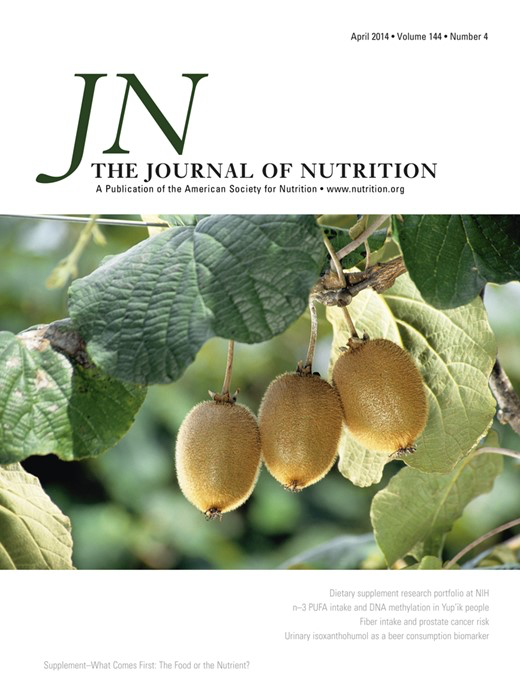
Consumption of Fish Oil Providing Amounts of Eicosapentaenoic Acid and Docosahexaenoic Acid That Can Be Obtained from the Diet Reduces Blood Pressure in Adults with Systolic Hypertension: A Retrospective Analysis
2016 Mar The Journal of Nutrition Minihane AM, Armah CK, Miles EA, Madden JM, Clark AB, Caslake MJ, et al.
Randomised Controlled Trial High Blood Pressure Omega-3 Fatty AcidsDietary omega-3 intake shows promise in lowering systolic blood pressure.
Study Protocols
Published study protocols are detailed plans that outline the objectives, methodology, statistical analyses, and organisation of a research study that have been made publicly available for others to review and use as a reference.
Presentation Slides

Systematic Review
Natural calcium-rich mineral waters offer a bioavailable calcium source, beneficial for bone health, cardiovascular function, weight management, and overall well-being.
Pop MS, Cheregi DC, Onose G, Munteanu C, Popescu C, Rotariu M, Turnea MA, Dograru G, Ionescu EV, Oprea D, Iliescu MG, Minea M, Stanciu LE, Silișteanu SC, Oprea C

Randomised Controlled Trial
Consumption of blueberry powder daily improves vascular function, cognitive abilities, and reduces blood pressure in healthy older individuals.
Wood E, Hein S, Mesnage R, Fernandes F, Abhayaratne N, Xu Y, Zhang Z, Bell L, Williams C, Rodriguez-Mateos A

Systematic Review
All schools of Tai Chi chuan can improve the mental health of the elderly.
Xianjian C, Datao X

Review Article
Cocoa and cocoa products, enriched with polyphenols, have potential health benefits including enhanced vascular function, cancer prevention, and improvement in learning and memory.
E S, Panjikkaran ST, L SC, R RP

Review Article
Lycopene may improve vascular function and contributes to the primary and secondary prevention of cardiovascular disorders.
Mozos, I., Stoian, D., Caraba, A., Malainer, C., Horbańczuk, J. O., & Atanasov, A. G

Systematic Review
The biomarkers that were significantly different between black seeds and white sesame seeds are highly related to the functions recorded in traditional Chinese medicine.
Wang D, Zhang L, Huang X, Wang X, Yang R, Mao J, Wang X, Wang X, Zhang Q, Li P.

Systematic Review
Cocoa consumption has strong beneficial impacts on cardiovascular health, reducing blood pressure, improving vascular function, and modulating lipid and glucose metabolism.
Ludovici V, Barthelmes J, Nägele MP, Enseleit F, Ferri C, Flammer AJ, Ruschitzka F, Sudano I
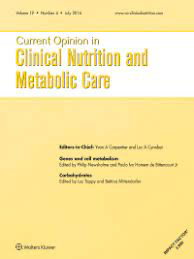
Review Article
Recent studies have shown that chronic L-citrulline supplementation increases nitric oxide synthesis, decreases blood pressure, and may increase peripheral blood flow.
Figueroa A, Wong A, Jaime SJ, Gonzales JU.

Randomised Controlled Trial
Montmorency tart cherry juice intake can significantly lower systolic blood pressure in men with early hypertension, with improvements linked to phenolic acids.
Keane KM, George TW, Constantinou CL, Brown MA, Clifford T, Howatson G

Randomised Controlled Trial
Dietary omega-3 intake shows promise in lowering systolic blood pressure.
Minihane AM, Armah CK, Miles EA, Madden JM, Clark AB, Caslake MJ, Packard CJ, Kofler BM, Lietz G, Curtis PJ, Mathers JC, Williams CM, Calder PC
Executive Summary
Write an executive summary in the form of a blog article on the topic of "Research into Chinese medicine treatment for Vascular Function" summarising the research below and using language that can be easily understood by patients and avoiding medical jargon using a professional and caring tone of voice.
Write an executive summary in the form of a blog article on the topic of "Researched Chinese medicine treatments for Vascular Function" summarising the research below in an objective and easy to understand way, and using language that can be easily understood by patients. Group the article into Chinese medicine treatments first, followed by nutrition and other treatments. Avoid using medical jargon and use a professional and caring tone of voice.
Write me a concise but easy to understand executive summary on the topic of "Chinese medicine treatments for Vascular Function" based on the following research that I will give you. Your summary should be 2 paragraphs long in Australian English spelling and include references to the studies.
A Systematic Review published in 2023 in the journal Nutrients found that Natural calcium-rich mineral waters offer a bioavailable calcium source, beneficial for bone health, cardiovascular function, weight management, and overall well-being. This systematic review analyzed peer-reviewed articles, clinical trials, and experimental studies from the past decade. It focused on the health benefits of calcium-rich mineral waters, especially for individuals with lactose intolerance or on plant-based diets. The review process assessed the contribution of these waters to daily calcium intake and their bioavailability compared to other calcium sources. The review found that natural mineral waters high in calcium can significantly enhance calcium intake, with improved absorption rates. These waters show promise in promoting bone health and cardiovascular function, including potential reductions in blood pressure and cardiovascular disease risk. Some evidence suggests benefits in weight management. However, the review highlighted the need for further research on interactions with other dietary components, effects on specific health conditions, and long-term consumption impacts. Despite these gaps, calcium-rich mineral waters are recognized as a valuable dietary calcium source for a diverse population.
A Randomised Controlled Trial published in 2023 in the journal The American Journal of Clinical Nutrition found that Consumption of blueberry powder daily improves vascular function, cognitive abilities, and reduces blood pressure in healthy older individuals. This double-blind, parallel randomized controlled trial engaged 61 healthy older individuals aged between 65 to 80 years old. Participants were given either 26g of freeze-dried wild blueberry (WBB) powder, comprising 302 mg anthocyanins, or a similar placebo with zero mg anthocyanins. Measurements were made for endothelial function, cognitive function, arterial stiffness, blood pressure, cerebral blood flow, gut microbiome, and blood parameters, both at the start of the trial and again following 12 weeks of daily consumption. In addition, plasma and urinary polyphenol metabolites were analyzed through the use of microelution solid-phase extraction combined with liquid chromatography-mass spectrometry. In the WBB group, there was a notable increase in endothelial function and a decrease in 24-hour ambulatory systolic blood pressure, when compared to the placebo group. Enhanced immediate recall on the auditory verbal learning task was also observed, along with better accuracy on a task-switch task following administering of WBB. Notably, the total 24-hour urinary excretion of polyphenols also significantly increased in the WBB group comparative to the control group. In contrast, there were no discernible changes in cerebral blood flow or gut microbiota composition. These findings imply that WBB polyphenols could contribute to reducing future cardiovascular disease risk in older populations, and might enhance memory processes and executive functioning in older adults at risk of cognitive decline.
A Systematic Review published in 2021 in the journal Physical Activity and Health found that All schools of Tai Chi chuan can improve the mental health of the elderly. Tai Chi's potential mechanisms include reducing anxiety, relieving depression and stress, enhancing pulmonary and cardiovascular function, enhancing immunity and improving quality of life.
A Review Article published in 2019 in the journal Agricultural Reviews found that Cocoa and cocoa products, enriched with polyphenols, have potential health benefits including enhanced vascular function, cancer prevention, and improvement in learning and memory. The authors carried out an extensive review of the nutritional profile of cocoa beans, focusing on the high content of carbohydrates, protein, fat, fiber, and minerals. Significantly, they pinpointed bioactive compounds, especially polyphenols (flavonoids and nonflavonoids), as key constituents, attributing to cocoa its antioxidant and anti-inflammatory properties. Emphasis was placed on the consumption of flavonoid-rich chocolates and its potential health benefits. The findings of the research underscore multiple health benefits from cocoa's flavonoids. These include an improvement in peripheral vascular function and a suppression of molecular processes linked with cancer. Notably, the flavonoids have been observed to heighten insulin sensitivity and reduce oxidative damage. They also seem to concentrate in brain areas associated with learning and memory. These insights collectively support the integration of cocoa and its products as a part of a nutritious and balanced diet.
A Review Article published in 2018 in the journal Frontiers in Pharmacology found that Lycopene may improve vascular function and contributes to the primary and secondary prevention of cardiovascular disorders. The main activity profile of lycopene includes antiatherosclerotic, antioxidant, anti-inflammatory, antihypertensive, antiplatelet, anti-apoptotic, and protective endothelial effects, the ability to improve the metabolic profile, and reduce arterial stiffness. In this context, lycopene has been shown in numerous studies to exert a favorable effect in patients with subclinical atherosclerosis, metabolic syndrome, hypertension, peripheral vascular disease, stroke and several other cardiovascular disorders, although the obtained results are sometimes inconsistent, which warrants further studies focusing on its bioactivity.
A Systematic Review published in 2018 in the journal Molecules found that The biomarkers that were significantly different between black seeds and white sesame seeds are highly related to the functions recorded in traditional Chinese medicine. Chemical composition of secondary metabolites is of great importance for quality control of agricultural products. Black sesame seeds are significantly more expensive than white sesame seeds, because it is thought that black sesame seeds are more beneficial to human health than white sesame seeds. However, the differences in nutrient composition between black sesame seeds and white sesame seeds are still unknown. The current study examined the levels of different metabolites in black and white sesame seeds via the use of a novel metabolomics strategy. Using widely targeted metabolomics data, we obtained the structure and content of 557 metabolites, out of which 217 metabolites were identified, and discovered 30 metabolic pathways activated by the secondary metabolites in both black and white sesame seeds. Our results demonstrated that the main pathways that were differentially activated included: phenylpropanoid biosynthesis, tyrosine metabolism, and riboflavin metabolism. More importantly, the biomarkers that were significantly different between black seeds and white sesame seeds are highly related to the functions recorded in traditional Chinese medicine. The results of this study may serve as a new theoretical reference for breeding experts to promote the genetic improvement of sesame seeds, and therefore the cultivation of higher quality sesame varieties.
A Systematic Review published in 2017 in the journal Frontiers in Nutrition found that Cocoa consumption has strong beneficial impacts on cardiovascular health, reducing blood pressure, improving vascular function, and modulating lipid and glucose metabolism. In the study's methodology, the link between the consumption of natural polyphenol-rich foods, specifically cocoa, and a decreased risk of cardiovascular diseases was explored. The process involved evaluating cocoa's influence on various aspects, such as blood pressure reduction, vascular function improvement, lipid and glucose metabolism modulation, and reduction of platelet aggregation. This evaluation was performed in varying demographic groups, including healthy individuals, individuals with risk factors such as diabetes and arterial hypertension, and individuals with established coronary heart diseases or heart failure. The study's findings indicate that cocoa's consumption has a significant and positive effect on cardiovascular health. Notably, it was found to reduce blood pressure, enhance vascular function, and modulate lipid and glucose metabolism. These beneficial effects were observed in all the subjects irrespective of their health status - healthy, at risk, or with established cardiovascular diseases. The results hypothesize several potential mechanisms through which cocoa exerts these positive effects, including the activation of nitric oxide synthase, increased availability of nitric oxide, and inherent antioxidant and anti-inflammatory properties.
A Review Article published in 2017 in the journal Current Opinion in Clinical Nutrition and Metabolic Care found that Recent studies have shown that chronic L-citrulline supplementation increases nitric oxide synthesis, decreases blood pressure, and may increase peripheral blood flow. L-Citrulline, either synthetic or in watermelon, may improve vascular function through increased L-arginine bioavailability and nitric oxide synthesis. There is clear evidence that acute L-citrulline ingestion increases plasma L-arginine, the substrate for endothelial nitric oxide synthesis. However, the subsequent acute improvement in nitric oxide production and mediated vasodilation is inconsistent, which likely explains the inability of acute L-citrulline or watermelon to improve exercise tolerance. Recent studies have shown that chronic L-citrulline supplementation increases nitric oxide synthesis, decreases blood pressure, and may increase peripheral blood flow. These changes are paralleled by improvements in skeletal muscle oxygenation and performance during endurance exercise. The antihypertensive effect of L-citrulline/watermelon supplementation is evident in adults with prehypertension or hypertension, but not in normotensives. However, L-citrulline supplementation may attenuate the blood pressure response to exercise in normotensive men. The beneficial vascular effects of L-citrulline/watermelon supplementation may stem from improvements in the L-arginine/nitric oxide pathway. Reductions in resting blood pressure with L-citrulline/watermelon supplementation may have major implications for individuals with prehypertension and hypertension. L-Citrulline supplementation, but not acute ingestion, have shown to improve exercise performance in young healthy adults.
A Randomised Controlled Trial published in 2016 in the journal The American Journal of Clinical Nutrition found that Montmorency tart cherry juice intake can significantly lower systolic blood pressure in men with early hypertension, with improvements linked to phenolic acids. In a carefully controlled, blinded, crossover study employing a randomized Latin square design, fifteen male participants showing early signs of hypertension were given either a 60-mL dose of Montmorency tart cherry (MC) concentrate or a placebo. A recovery period of at least 14 days was allowed between tests to eliminate lingering effects from the previous test. Observations centred on microvascular reactivity, arterial stiffness, blood pressure, and phenolic acid absorption, and these were collected at designated intervals before and up to eight hours after consuming the MC concentrate or placebo. The analysis of the data revealed that consumption of the MC concentrate resulted in a significant reduction in systolic blood pressure in comparison to the placebo, reaching maximum impact two hours after intake. Crucially, this positive effect was found to coincide with an increase in circulating protocatechuic and vanillic acid 1-2 hours post consumption. Thus, it is suggested that the benefits of MC for cardiovascular health, particularly for blood pressure control, can be directly attributed to the influence of these circulating phenolic acids.
A Randomised Controlled Trial published in 2016 in the journal The Journal of Nutrition found that Dietary omega-3 intake shows promise in lowering systolic blood pressure. A study involving 312 participants investigated the effects of achievable dietary intake of omega-3 fatty acids, specifically eicosapentaenoic acid (EPA) and docosahexaenoic acid (DHA), on blood pressure and vascular function. Participants were divided into groups receiving different doses of EPA+DHA for 8 weeks. Overall, there were no significant effects observed. However, in individuals with isolated systolic hypertension (SHT), a clinically meaningful reduction in systolic blood pressure (5 mm Hg) was noted with a low dose of EPA+DHA (0.7 g). The study suggests that even modest omega-3 intake may have potential benefits in reducing cardiovascular risk for individuals with SHT. Further research is recommended for conclusive results.
Moderation Tools
Topic
Sign In
Users not signed in are limited to viewing the 5 most recent items of content.